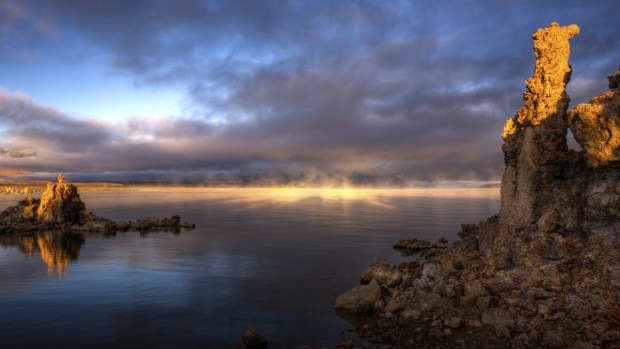
One of the authors of the scientific paper that described an arsenic-using microbe has asked everyone to calm down for a moment, and said that everything will be cleared up in the days ahead. Felisa Wolfe-Simon, the scientist whose paper (co-written with several others) genuinely ignited America’s interest in science for a day or two (a gigantic achievement in and of itself) had come under fire from a number of scientists, most prominently one at the University of British Columbia, Vancouver, who claimed that the study was a load of bunk, and that we’ve all been had. It didn’t help that Wolfe-Simon and her partners refused to talk to the media (as if some cable news anchor can convey whats’ going on here in a 15-second sound bite), which contributed to the backlash.
Wolfe-Simon has given an interview to the news department of Science, the academic journal where the paper (“A Bacterium That Can Grow by Using Arsenic Instead of Phosphorus”) was first published. In it we discover a few things, including that all of the hoopla (the Nasa news conference and so forth) surrounding the paper’s publication was never intended by the authors, and that the subsequent negative reaction by some will be addressed in future editions of Science. It will also be addressed scientifically, which is key: what good does it do the authors, never mind the science behind the paper, to appear on Cable News Shout-Fest to defend her claims in front of people whose sole skill is the ability to TALK LOUDLY at people? (Not even to people, but at them!) It’d be a waste of time, time that could be better used to publish materials for a community that would actually understand what’s going on.
In the interview, Wolfe-Simon says the team wants to address people’s concerns on the record, and hosting press conferences and answering random questions from random people isn’t exactly conducive to what they’re trying to accomplish.
Wolfe-Simon also refutes that idea that the team’s discovery could merely be attributed to dirty slides, as some had suggested. (That complaint always seemed silly to me: as if a team of PhDs doesn’t know how to properly clean their slides!)
Let’s face it: it’s Christmas week and there’s not a whole lot going on, so do yourself the favor of reading the interview in its entirety before you completely write off the team’s discovery. At the very least wait until it publishes further material before jumping to conclusions.